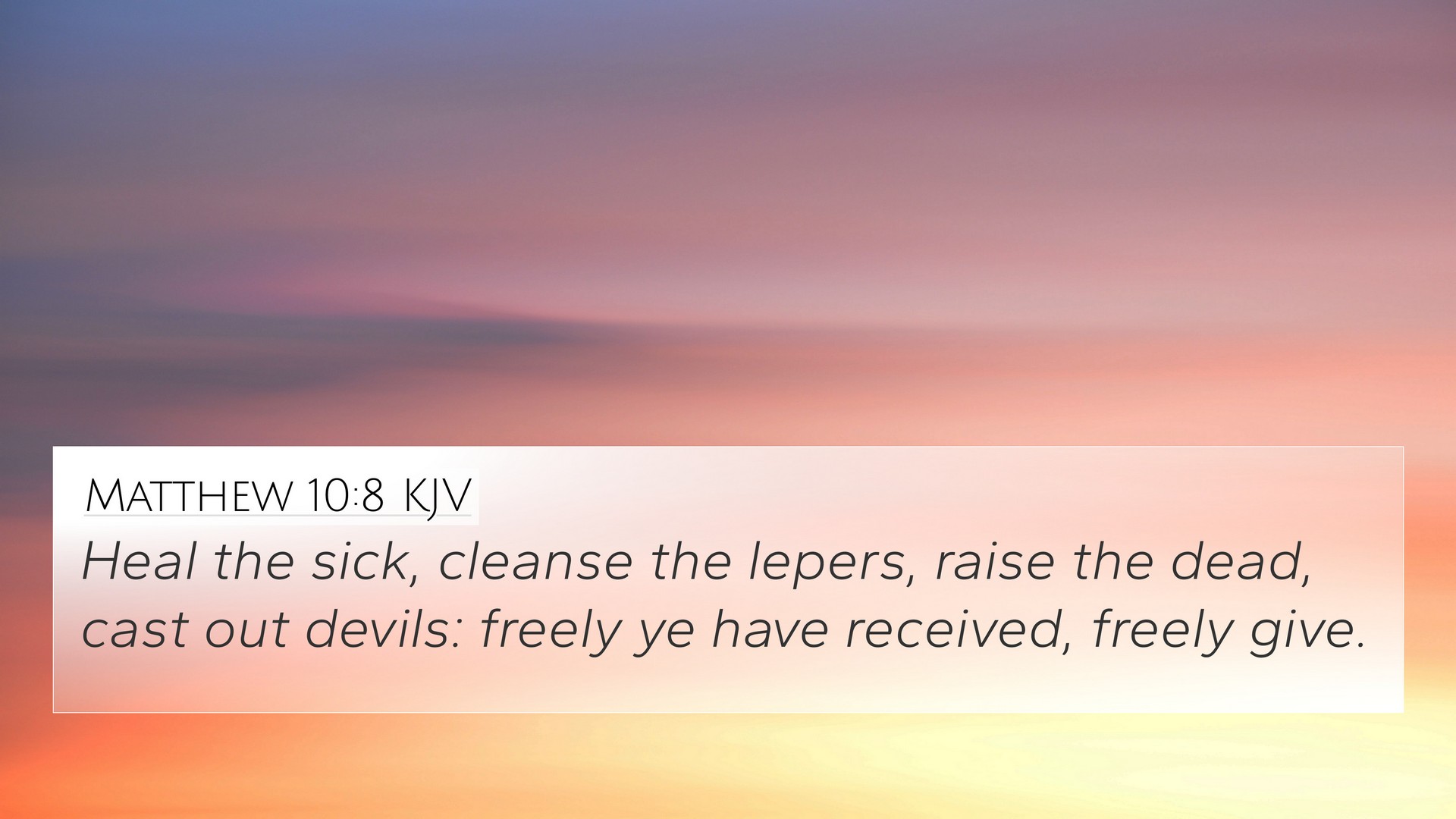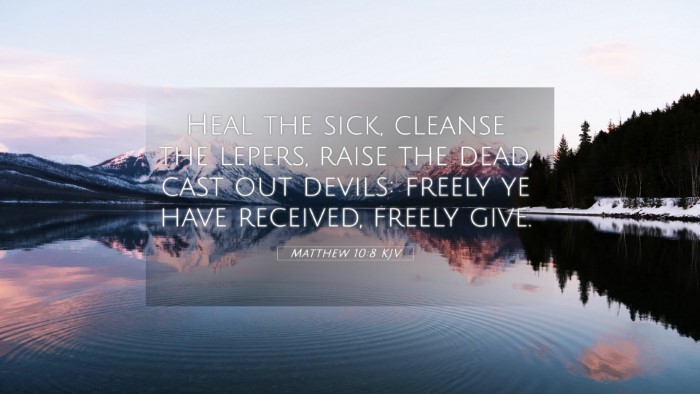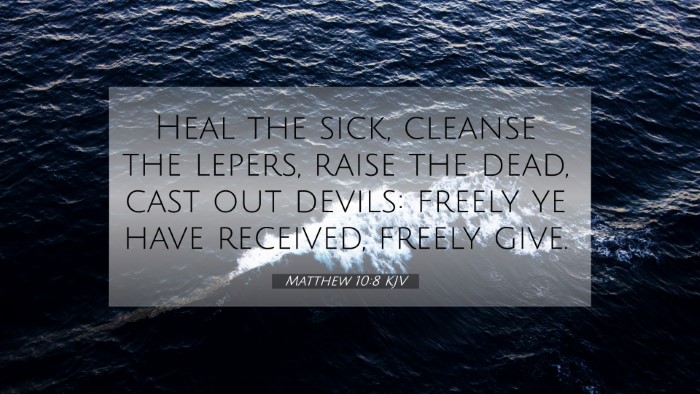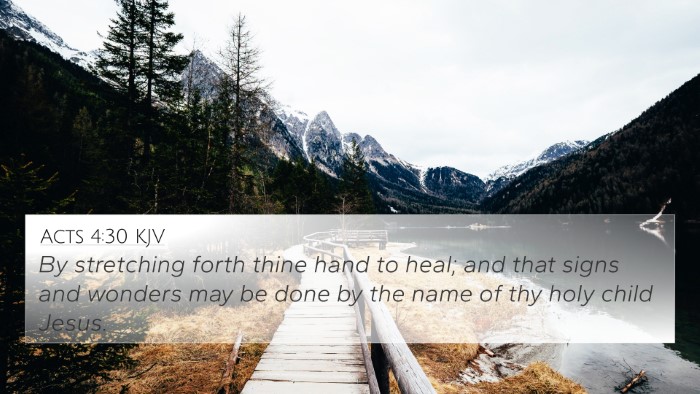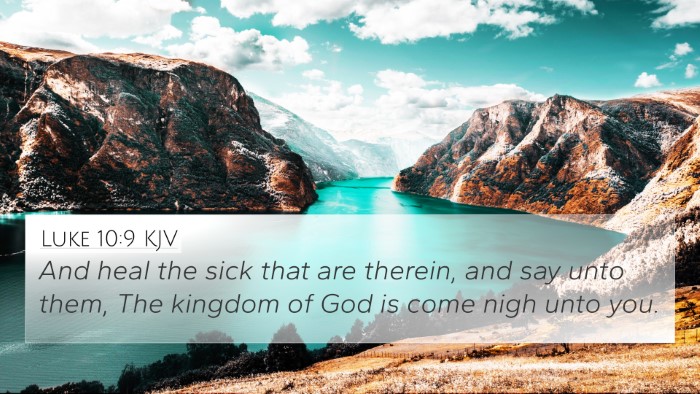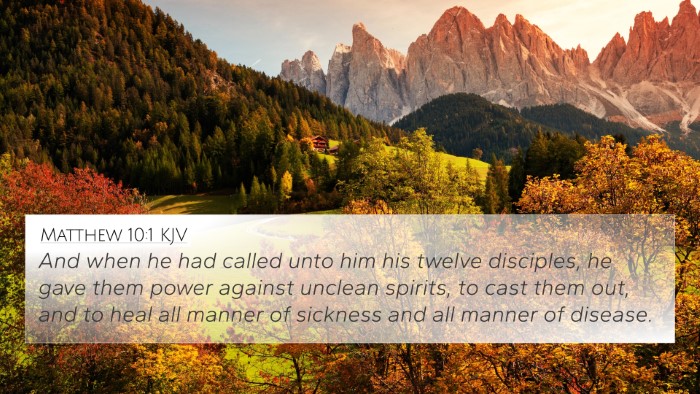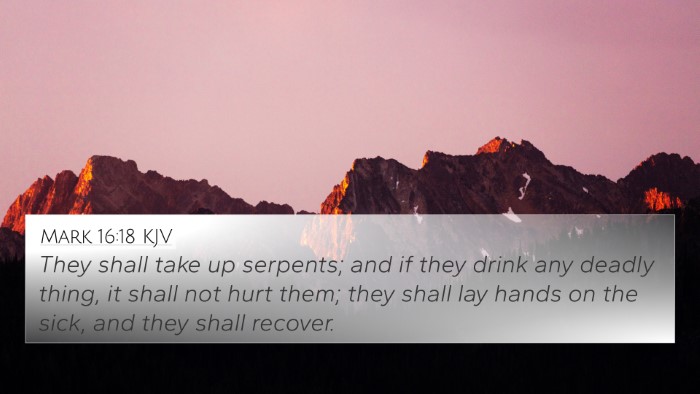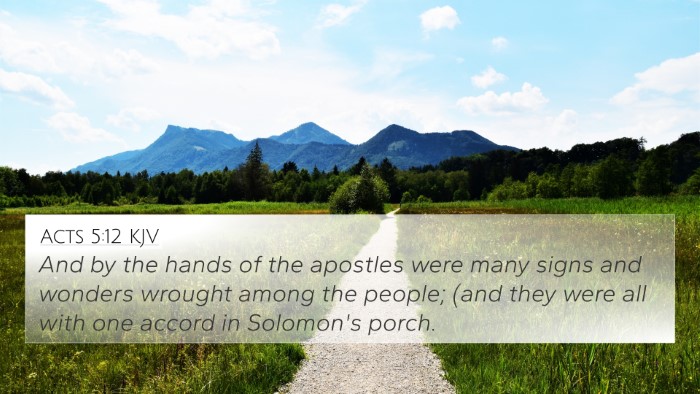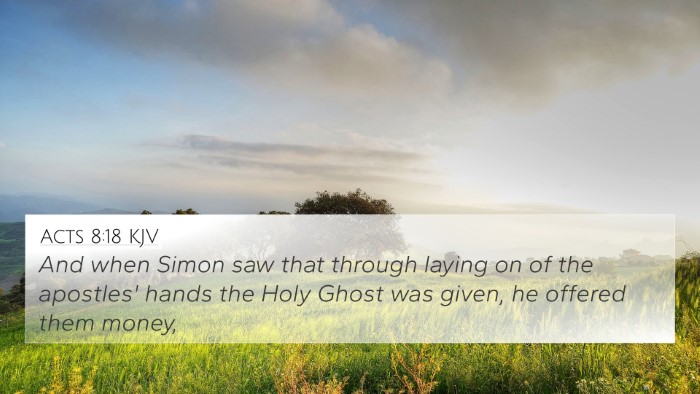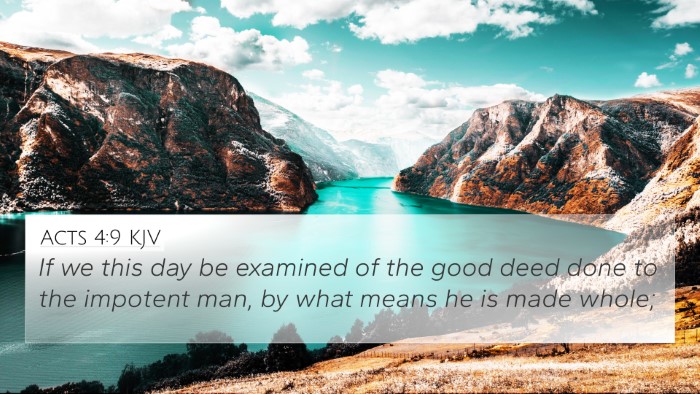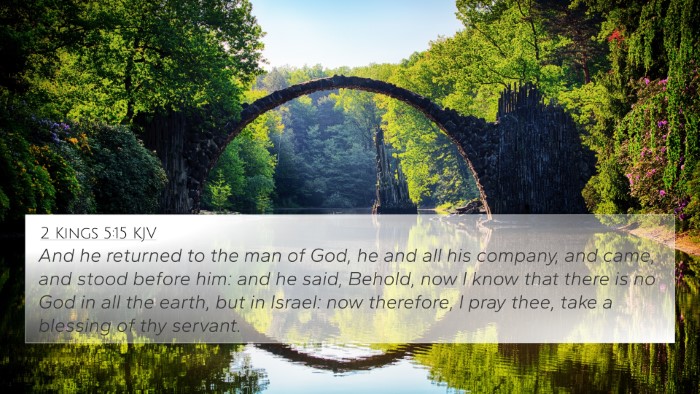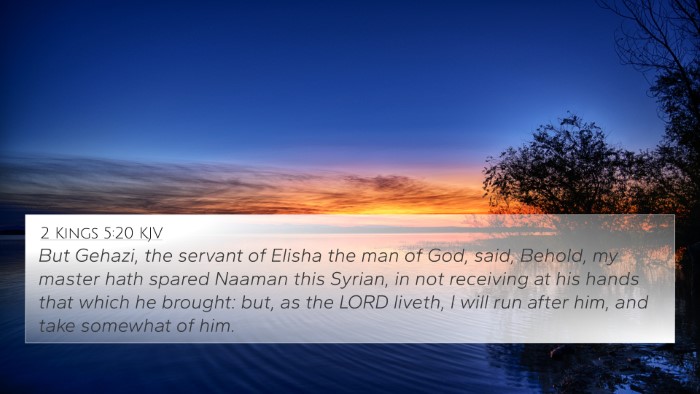Understanding Matthew 10:8
Bible Verse: "Heal the sick, cleanse those who have leprosy, raise the dead, drive out demons. Freely you have received; freely give." - Matthew 10:8 (NIV)
Overview of Matthew 10:8
This verse is part of Christ's instruction to His disciples as He sent them out to preach the Gospel. The command highlights the ministry of healing and deliverance that accompanies the proclamation of the Kingdom.
Meaning and Significance
The verse encapsulates several key themes:
- Divine Commission: Jesus sends His followers with authority and purpose.
- Gift of Healing: The disciples were empowered to enact signs of God's Kingdom.
- Freely Given, Freely Given: The concept of grace is emphasized, underscoring the need for generosity in ministry.
Insights from Commentaries
1. Matthew Henry:
Matthew Henry emphasizes that the miracles performed by the disciples served both to authenticate their message and to exemplify the compassion of Christ. Healing the sick and raising the dead were acts of mercy demonstrating God's power and love.
2. Albert Barnes:
Barnes focuses on the imperative nature of the command, noting that these miraculous acts were a sign of the coming kingdom and that the disciples' freedom in receiving from God necessitated a selfless giving to others.
3. Adam Clarke:
Clarke elaborates on the direct connection between faith and action, underscoring that the disciples' empowerment was a direct result of their intimate relationship with Jesus and His mission. He suggests that this is a model for Christian ministry today.
Cross-References and Connections
Matthew 10:8 is intricately connected to various other passages in the Scriptures, illustrating broader themes of divine empowerment, grace, and ministry. Here are some key cross-references:
- Luke 9:1-2: The parallel account of Jesus sending out the twelve with authority to heal and preach.
- Mark 16:17-18: Jesus promises signs that will accompany those who believe, including healing and deliverance.
- Acts 3:6-8: Peter heals a crippled man, demonstrating the continuation of the ministry of healing in the early church.
- James 5:14-15: A command for the church to pray for the sick, reinforcing the ongoing ministry of healing.
- Matthew 28:18-20: The Great Commission emphasizes the broader mission of discipleship and teaching.
- John 14:12: Jesus states that those who believe in Him will do the works He has done and greater works still.
- Isaiah 61:1-2: The prophecy concerning the Messiah's ministry, which encompasses healing and revival.
- Romans 12:6-8: Paul speaks about the gifts given to believers for the edification of the body of Christ, including healing.
- 2 Corinthians 9:11: The principle of generosity rooted in the grace received from God which aligns with giving freely.
- 1 Peter 4:10: Serving one another with the gifts received from God, aligning with the notion of freely giving.
Thematic Connections in Scripture
Through these associations, we find various themes that illustrate the richness of biblical teaching.
- The Ministry of Healing: This theme ties to the compassion of Jesus and His call for believers to carry on this work.
- Grace and Generosity: The expectation of disciples is to share the blessings they have received without cost.
- Empowerment for Service: Each believer is called and equipped to engage in ministry that reflects the character of Christ.
Practical Applications for Today's Believers
Understanding Matthew 10:8 encourages believers to:
- Engage in Acts of Service: Seek opportunities to heal, help, and minister to others as an extension of Christ's love.
- Recognize Their Empowerment: Trust in the Holy Spirit's empowerment to serve and minister effectively.
- Practice Generosity: Share what we have received from God with others, embodying the spirit of generosity and grace.
Conclusion
Matthew 10:8 serves as a profound reminder of the mission given to every believer—striving to heal, restore, and share the blessings of God's grace freely with the world around them. This understanding not only encourages personal faith in action but also enriches the community of believers as they work together in the Kingdom's mission.
